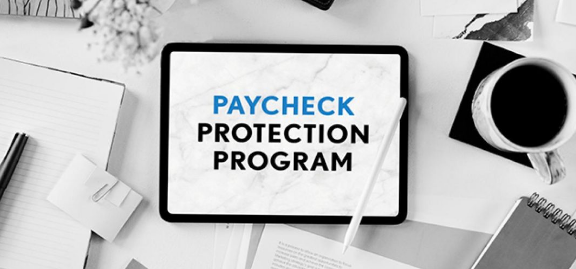Congress Passes the Paycheck Protection Program Flexibility Act

Congress has just passed the Paycheck Protection Program Flexibility Act, which President Trump is expected to sign into law. Significantly, this bill extends the time that businesses have to spend Paycheck Protection Program (“PPP”) loan funds and changes the PPP forgiveness rules. Important aspects of the bill are summarized below.
The Paycheck Protection Program Flexibility Act extends the “covered period” to February 15, 2020 to December 31, 2020. Thus, the period during which PPP loan funds may be used is extended from 8 weeks to 24 weeks after the disbursement of the PPP loan, or up until December 31, 2020, whichever happens earlier. Borrowers who received a PPP loan before this bill may elect to use an 8-week forgiveness period.
The Act also provides that any reduction in the amount of PPP loan forgiveness is avoided if the employer rehires all employees laid off between February 15, 2020 and April 26, 2020, or increases their previously reduced wages, by no later than December 31, 2020.
Additionally, the Act creates another exemption to the reduction-in PPP loan forgiveness. This new exemption states that the amount of PPP loan forgiveness will be determined “without regard to a proportional reduction in the number of full-time equivalent employees”, i.e. without regard to terminated employees, if the borrower, in good faith can do either of the following:
- Can document an inability to rehire individuals who were employees of the eligible recipient as of February 15, 2020 and an inability to hire similarly qualified employees for unfilled positions on or before December 31, 2020; or
- Can document an inability to return to the same level of business activity at which the borrower was operating before February 15, 2020, due to compliance with requirements established or guidance issued by the Secretary of Health and Human Services, the Director of the Centers for Disease Control and Prevention, or the Occupational Safety and Health Administration, during the period between March 1, 2020 and December 31, 2020, related to the maintenance of standards for sanitation, social distancing, or any other worker or customer safety requirement related to COVID-19.
These exemptions will help businesses which are unable to return to full operation due to restrictions on customer capacity or similar reopening restrictions that make it difficult for the businesses to maintain activity.
The Act also amends the guidance issued by the SBA and Department of the Treasury which previously placed the cap on non-payroll costs at 25% of the total forgiveness amount. The Act states that borrowers must use at least 60% of the PPP loan amount for payroll costs, and at most 40% of the PPP loan amount for non-payroll costs (rent, mortgage interest, and utilities). The previous guidance issued by the SBA and Department of the Treasury placed the cap on non-payroll costs at 25% of the total forgiveness amount, not the total loan amount.
Under the Act, payment of principal, interest, and fees are deferred until the date that the amount of forgiveness is remitted to the lender. Borrowers must submit applications for forgiveness within ten months after the last day of the covered forgiveness period.
Monitor Eviction Moratorium Extensions in Your City
As extension moratoriums begin to expire for commercial tenants, ensure that you are aware of the ordinance or rule that applies to your business. The following are examples of moratoriums which have been extended:
The City of Los Angeles approved an ordinance on May 7, 2020 which continues to prohibit commercial evictions during emergency period, and for an additional 3 months thereafter. This extension does not include commercial real property leased by a multi-national company, a publicly traded company, or a company that employs more than 500 employees.
The City of Long Beach adopted an ordinance on May 26, 2020 which extends its moratorium on commercial evictions through July 31, 2020. However, some commercial tenants who were previously protected through May 31, 2020 have been excluded:
- Tenants and sub-tenants which are multi-national companies, publicly-traded companies, or companies which have more than five hundred (500) employees;
- Tenants and sub-tenants managed by the Long Beach Airport;
- Tenants and sub-tenants managed by the Long Beach Harbor Department; and
- Tenants and sub-tenants within the Long Beach Tidelands area.
The City of San Francisco continues to prohibit commercial evictions. Its moratorium on commercial evictions has been extended for an additional 30 days, from May 17, 2020 to June 16, 2020.
The City of Santa Ana has extended its temporary moratorium on commercial evictions for non-payment of rent through June 30, 2020.
The City of Sacramento and the City of Costa Mesa have extended their commercial eviction moratoriums through July 28, 2020.
However, note that even after expiration of eviction moratoriums, businesses are still obligated to pay back rent. The time by which businesses must repay back rent depends on the ordinance in effect for their localities. Tenants and landlords are also free to agree amongst themselves with respect to repayment plans.
Please consult us for advice regarding the ordinance applicable to your business.
 |
 |
| ERICA M. SOROSKY esorosky@ptwww.com (949) 851-7271 |
ERIN K. OYAMA eoyama@ptwww.com (949) 851-7288 |

